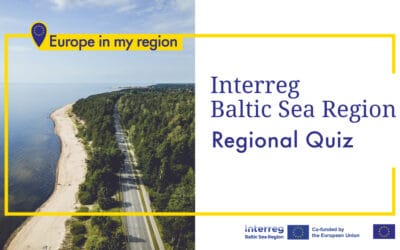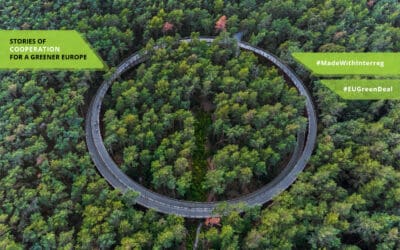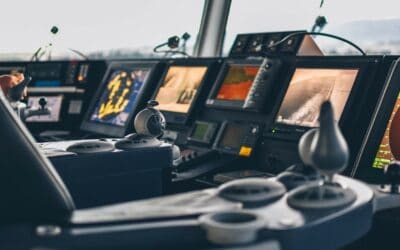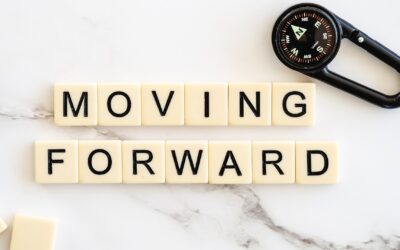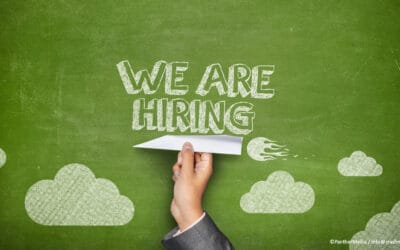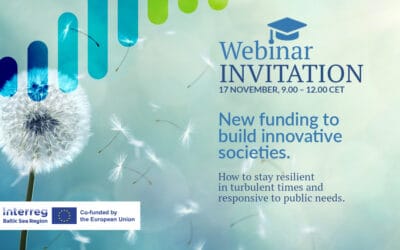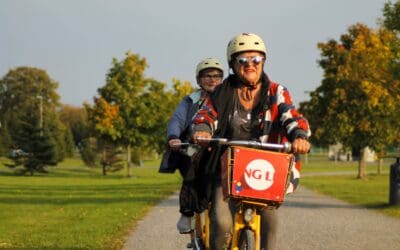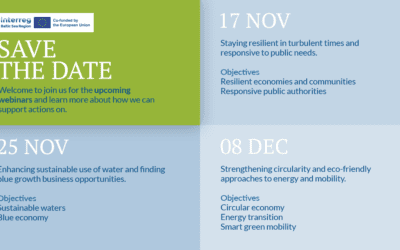How much do you know about the Baltic Sea? Are you a true expert in our region: its traditions and history? Check this out by taking part in the quiz. Challenge your “Balticness”! The Baltic Sea region stretches from central parts of Europe up to its northernmost...
Interreg Baltic Sea Region
News
Showing Europe how ecodesign greens our economy
Reducing waste and ensuring sustainable use of our natural resources can’t be done by one country alone. We need more effective transnational solutions like the two successful examples from the Baltic Sea region and Central Europe show.
Moving towards a single digital market in the Baltic Sea region
The uptake of digital solutions both in the public and private sectors is the key to boost innovation and remain competitive. The Interreg project DIGINNO helped small and medium sized enterprises (SMEs), industry associations and policy makers speed up the Baltic Sea region’s transition to a single digital market.
Harnessing the benefits of digitalisation for an eco-efficient maritime industry
Maritime industry in the Baltic Sea region needs innovative ideas to keep up with strict environmental regulations while maintaining competitiveness. Driven by eco-efficiency, the ECOPRODIGI project developed and piloted digital solutions to better measure, visualise and optimise maritime industry processes.
Joint Programming Committee endorsed rules and guidance for applicants for the first calls
The Joint Programming Committee (JPC) gathered together in order to endorse the documents that set the rules and are the basis for the guidance for applicants in the first calls for applications in the new Interreg Baltic Sea Region Programme 2021 - 2027. The 9th JPC...
We are hiring!
Work @Interreg Baltic Sea Region Are you interested in what is happening in the Baltic Sea region? Do you believe in European cooperation? Do you want to work in an international environment? In the Interreg Baltic Sea Region team we are committed to European...
How citizens drive favorable change in the Baltic Sea region
Interaction between public service providers and citizens is necessary to face the most pressing societal challenges and better respond to the needs of citizens. Find out how our #MadeWithInterreg projects Empaci, Healthy Boost and SEMPRE have driven the co-creation...
Register for the first webinar now!
Register for the first webinar now! Register now for the first Interreg Baltic Sea Region webinar on "Innovative societies" organised on 17 November 2021 and learn more how your project ideas can help build resilient economies and communities and support responsive...
Interreg approach to age-friendly green mobility
The GreenSAM project focused on the development of age-friendly green mobility solutions based on the opinions and needs of elderly people. This was done thanks to participatory tools used in six cities across the Baltic Sea region. The key role of senior citizens in...
SAVE THE DATE!
Join our upcoming webinars and learn more about Interreg Baltic Sea Region funding opportunities. Get more information about Interreg Baltic Sea Region Programme 2021-2027, its priorities and inspiration on what can be developed with new partnerships. We will guide...



